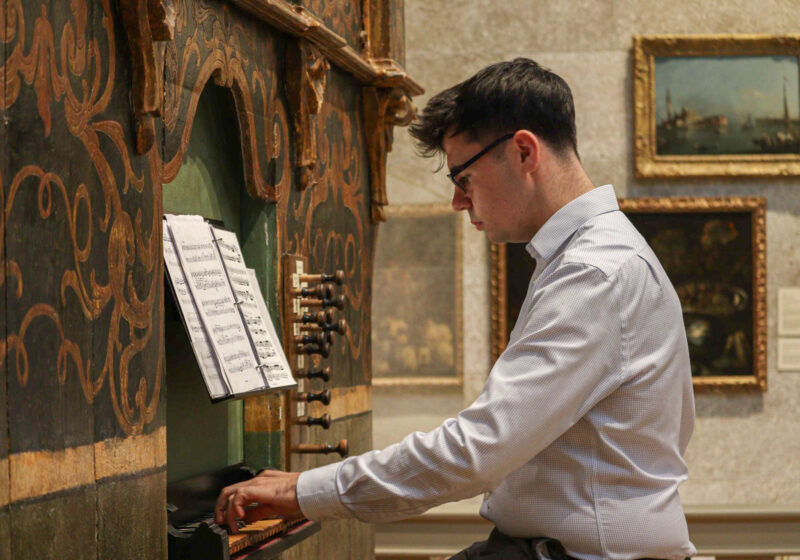A huge problem facing classical musicians today is society’s ever-decreasing interest in classical music.
In the past, classical music concerts targeted those audience members already interested in and familiar with classical music. The unfortunate attendees that perhaps went to the wrong building sat lost in a musical universe unknown to them. Where were the screaming fans, the beer cans and the mosh pits? After they sat fidgeting in a seat for almost two hours, the uninitiated didn’t know what was going on and left unsatisfied without plans to come again.
While targeting a specific audience is not a bad idea, classical music does not have the luxury of being a staple of mainstream American pop culture. Teenagers don’t vote for Beethoven on MTV’s TRL. The Emerson Quartet’s scandalous younger years are not revealed on VH1’s “Behind the Music.” Classical music needs a wider audience. It’s just too good to be enjoyed by only a few.
Luckily, Eastman students, the future players of classical music, are having a rare opportunity to witness professional classical musicians who have found innovative ways to interest all members of their audience.
Tales & Scales, a nationally acclaimed chamber ensemble, will present its unique “musictelling” to Kilbourn Hall Saturday, January 26 at 10 a.m. This collection of Juilliard and Oberlin graduates uses sets and costumes to combine music and movement in order to bring the famous Greek myth of Pandora’s Box to life. Original music and choreography by George Tsontakis and Nusha Martynuk accompany the performance.
Tales & Scales gives more than 200 performances in schools, art centers and concert halls each year. Their musictelling has graced the stages of the Boston, Chicago and Detroit Symphonies, the Chatauqua Institution and most recently the Manhattan School of Music. They have been heard on National Public Radio’s “Morning Edition” and “Talk of the Nation” and are featured frequently in national publications.
This Saturday, student members of Eastman’s outreach program “Music for All” will attend a special workshop designed to give ideas on how to combine the arts with education.
“I’m looking forward to this weekend. It’s very important to give back to the community,” said sophomore flautist Sarah Frisof, a member of “Music for All.”
“Classical musicians often forget that we have a duty to interact and connect with the audience. Hopefully, ‘Music for All’ will help us,” she said.
In addition, Christopher Seaman, Music Director of the Rochester Philharmonic Orchestra, will give a presentation on the ways in which he warms up the RPO audience in his pre-concert chats.
Classical musicians will have to find creative and imaginative ways to fight for respect in a society that all too often ranks Backstreet Boys over Bach. Fortunately for the students at Eastman, we have the opportunity to learn from some very talented professionals that are overcoming the obstacles facing classical music. MTV, here we come.
Swanson can be reached at kswanson@campustimes.org.





